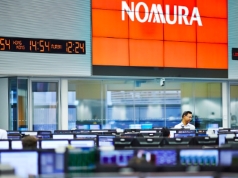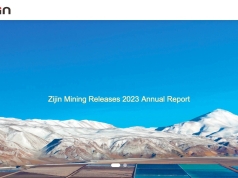Credit Suisse Single Family Office Survey Report 2022: 116 Single Family Office with $100 Billion AUM
8th October 2022 | Singapore
Credit Suisse has released the Credit Suisse Single Family Office Survey Report 2022, providing key insights into 116 single family offices globally managing $90 billion to $100 billion of assets (44% <$500 million AUM, 56% > $500 billion AUM). The top 3 business issues for family offices are Risk management (46%), Talent recruitment & retention (36%), Operating model (28%) while 60% have involvement of next generation (Not involved – 31%, No next generation – 9%). On investments, the top 3 challenges are Investment strategy & asset allocation (54%), Achieving annual return targets in this market environment (47%). The top 3 Private Market deal source are Personal connections (66%), Private equity or venture capital funds (42%), Private banks & wealth managers (38%). The top 3 Private Deals by Sector are Tech (56%), IT (32%), Property (27%). Family offices with less than $500 million (66%) rely on family members for investment decisions while family offices with more than $500 million rely on formal investment committee (60%). Family offices in APAC also rely more on family members (61%) compared to Europe, Middle East & Africa (EMEA) (39%). See key highlights & summary below. Download the full report here
Credit Suisse Single Family Office Survey Report 2022

Key findings on Single Family Offices:
- Top 3 Business issues: Risk management (46%), Talent recruitment & retention (36%), Operating model (28%)
- Involvement of family members and/or generational transition – 53%
- Involvement of Next Generation: 60% (Not involved – 31%, No next generation – 9%)
- Investment Challenges: Investment strategy & asset allocation (54%), Achieving annual return targets in this market environment (47%)
- Key financial investment decision-maker(s): Selected family members (48%, Beneficial owner (40%), Formal investment committee (35%), CIO (27%)
- Top 3 Private Market Deal Source: Personal connections (66%), Private equity or venture capital funds (42%), Private banks & wealth managers (38%)
- Top 3 Private Deals by Sector: Tech (56%), IT (32%), Property (27%)
- Analyse Private Deals: Capabilities in-house (58%), Lead investor’s or transaction sponsor’s diligence (35%), 3rd-party advisors (34%)
- Top 5 Private deal selection criteria: Quality of founder/management team (72%), Company’s financial profile (38%), Alignment of interests (29%), Industry (28%), Ability to do Due diligence (27%)
- ESG / Sustainable Investments: Yes (55%), No (45%)
Key Investment Decision-makers:
- Selected family members (APAC vs EMEA) – 61% vs 39%
- Formal investment committee (APAC vs EMEA) – 17% vs 50%
- Selected family members (< $500 million vs > $500 million) – 66% vs 30%
- Formal investment committee (< $500 million vs > $500 million) – 22% vs 60%
- CIO (< $500 million vs > $500 million) – 19% vs 30%
Europe, Middle East & Africa (EMEA)
1) Family Office Issues & Next Generation
Top Business-related challenges for family offices:
- Involvement of family members and/or generational transition – 53%
- Risk management – 46%
- Talent recruitment and retention – 36%
- Operating model – 28%
Relationships between family members – 26% - Cybersecurity – 24%
- Governance structure – 23%
Involvement of Next Generation:
- Involvement of Next Generation – 60%
- Next generation is currently not involved – 31%
- There is no next generation – 9%
Next generation involved (60%):
- Involvement in the strategic direction of the SFO – 58%
- Role within the family’s core business – 51%
Decisions related to the investment portfolio – 47% - Single family office operations – 36%
- Investing a portion of the assets – 29%
Next generation is currently not involved (31%):
- Potentially after three years – 73%
- No, this is not expected – 23%
- Yes, this is planned in the next three years – 5%
Strategy change with the next generation:
- Will remain consistent with the existing long-term strategies and values put in place by the family – 64%
- Will change significantly to align with the values and risk appetite of the next generation – 28%
- Existing family investments will be separated from “next generation” investment portfolios – 4%
- None of the above – 4%
Thomas Rohner, Managing Director, Premium Clients Switzerland Head Single Family Offices Credit Suisse: “We try to integrate the younger generation but it’s hard. The principal would often rather give them money to start their own business and be successful on their own than include them in SFO decision-making. However, it’s changing slowly. I think the next generation will be more open to integrating subsequent generations, and the generation after that even more so.”
2) Family Office Investments
Investment-related challenges:
- Investment strategy and asset allocation – 54%
- Achieving annual return targets in this market environment – 47%
- Diversification of the portfolio across geographies and sectors – 33%
- Global regulatory and tax changes – 33%
- Private deals and entrepreneurial investments – 27%
- Adapting to macro-economic events – 25%
Investments: APAC vs EMEA:
- Diversification across geographies – 43% vs 29%
- Global tax regulations – 39% vs 27%
- Sustainable investing – 0% vs 18%
Investments: < $500 million vs > $500 million:
- Diversification across geographies – 47% vs 28%
- Private deals – 34% vs 23%
- Investment strategy – 44% vs 59%
- Adapting to macro-economic events – 19% vs 28%
3) Family Office Decision-Makers on Investments
Key financial investment decision-maker(s):
- Selected family members – 48%
- Beneficial owner(s) – 40%
- Formal investment committee – 35%
- CIO – 27%
Key financial investment decision-maker(s): APAC vs EMEA:
- Selected family members – 61% vs 39%
- Formal investment committee – 17% vs 50%
Key financial investment decision-maker(s): < $500 million vs > $500 million:
- Selected family members – 66% vs 30%
- Formal investment committee – 22% vs 60%
- CIO – 19% vs 30%
4) Family Office in Private Markets
Most-used deal source:
- Personal connections – 66%
Private equity or venture capital funds – 42% - Private banks & wealth managers – 38%
- Corporate finance firms or investment banks – 25%
- Formal single family office networks – 24%
- Independent advisors or trusted family advisors – 24%
- We do not invest in private companies or club deals – 13%
Most-used deal source: APAC vs EMEA
- Personal connections – 78% vs 66%
- Private banks – 48% vs 25%
- Independent advisors – 22% vs 30%
Most-used deal source: < $500 million vs > $500 million
- Independent advisors – 29% vs 20%
- Private banks – 45% vs 23%
Formal single family office networks – 16% vs 25%
Private deal participation by SFO participation in last 24 months (Average Deals):
- Early stage investment (Series A or B) – 68 % (3.4 deals)
- Later stage investment (Growth/Series C or D) – 50% (2.7 deals)
- Start-up, incubation or pre-seed/seed funding – 45% (2.9 deals)
- Pre-IPO – 38% (2.2 deals)
- Leveraged buyouts (LBOs) or private equity deals – 33% (5.6 deals)
- Secondary transactions – 23% (1.6 deals)
Top Private Deals by Sector:
- Tech (e.g. FinTech, BioTech) – 56%
- IT – 32%
- Property – 27%
- Healthcare – 20%
- Retail and consumer goods – 13%
- Construction – 9%
- Engineering – 9%
- Agriculture – 8%
- Financial services – 8%
- Transportation – 8%
- Manufacturing – 7%
- Education – 5%
How Single Family Offices analyse Private Deals:
- Capabilities in-house – 58%
- Lead investor’s or transaction sponsor’s diligence – 35%
- 3rd-party advisors to support the investment process – 34%
- Invest via funds and/or curated club deal programs – 24%
Private deal selection criteria:
- Quality of founder/management team – 72%
- Company’s financial profile – 38%
Alignment of interests – 29%
Industry – 28% - Ability to do detailed due diligence – 27%
- Company stage in lifecycle – 23%
- Co-investment by deal provider – 23%
- Credibility of deal provider – 20%
Thomas Ang, Global Head of Family Office Services Credit Suisse: “The European market is more mature than the market in Asia, as reflected by the higher number of advisors and channels of support. Larger SFOs with more than $500 million of assets under management (AuM) invest quite heavily in property and healthcare while the smaller SFOs, with under $500 million AuM, tend to favor IT and education.”
5) Family Office on ESG
Single Family Offices Portfolio Allocation:
- ESG / Sustainable Investments: 55%
- No ESG / Sustainable Investments: 45%
ESG / Sustainable Investments Theme:
- Sustainable themes – 78%
- Exclusion – 46%
- ESG integration – 37%
- Impact investments – 37%
Executive Summary by Thomas Ang, Global Head of Family Office Services Credit Suisse

The fundamental purpose of every family office is to safeguard the long-term prosperity of the family in question. Our 2021 survey found that the focus of single family offices (SFOs) was on navigating the unprecedented market volatility and economic uncertainty triggered by the global pandemic. Twelve months on, our latest survey has revealed that these market forces are not only still affecting family office investment decisions, but are also compounded by the ripple effects of the war in Ukraine, resurging inflation and rising interest rates.
What is also clear is that SFOs are not a homogenous group. Each SFO acts exclusively on behalf of the family, and every family is unique in terms of its history, composition, culture, location and how it has structured and staffed its office.
At the same time, whether big or small, or based in Asia or Europe, SFOs have much in common. In their aim to secure long-term prosperity, many are responding to today’s challenges in similar ways – such as shifting their investment strategy to preserving rather than growing wealth in an economic environment where inflation threatens to erode value. Portfolio diversification is also higher up on the agenda, and SFOs continue to look to private markets for returns over the long term.
Our survey also indicated that SFOs have yet to find a solution to the age-old challenge of managing generational conflict. The number one concern of SFO managers is the smooth transfer of wealth to younger family members, who may well have different priorities and risk appetites.
There are also marked differences in how SFOs approach private market investing. The European market is more mature than the market in Asia, as reflected by the higher number of advisors and channels of support. Larger SFOs with more than USD 500 million of assets under management (AuM) invest quite heavily in property and healthcare while the smaller SFOs, with under USD 500 million AuM, tend to favor IT and education.
Where there are differences in approach between SFOs, these can often be attributed to the involvement of younger generations – especially when it comes to environmental, social and governance issues. ESG has yet to become a major driver in investment decisions, even though there is some evidence that this is changing as younger generations become more involved.
For more insight into the SFO of today, I encourage you to take a look. Thank you to all who took part in our survey. I hope you find the read both insightful and useful.
Credit Suisse
Credit Suisse is one of the world’s leading financial services providers. The bank’s strategy builds on its core strengths: its position as a leading wealth manager, its specialist investment banking and asset management capabilities and its strong presence in its home market of Switzerland. Credit Suisse seeks to follow a balanced approach to wealth management, aiming to capitalize on both the large pool of wealth within mature markets as well as the significant growth in wealth in Asia Pacific and other emerging markets, while also serving key developed markets with an emphasis on Switzerland. The bank employs more than 50,000 people. The registered shares (CSGN) of Credit Suisse Group AG, are listed in Switzerland and, in the form of American Depositary Shares (CS), in New York. Further information about Credit Suisse can be found at www.credit-suisse.com.
Sign Up / Register
Caproasia Users
- Manage $20 million to $3 billion of assets
- Invest $3 million to $300 million
- Advise institutions, billionaires, UHNWs & HNWs
Caproasia Platforms | 11,000 Investors & Advisors
- Caproasia.com
- Caproasia Access
- Caproasia Events
- The Financial Centre | Find Services
- Membership
- Family Office Circle
- Professional Investor Circle
- Investor Relations Network
Monthly Roundtable & Networking
Family Office Programs
The 2025 Investment Day
- March - Hong Kong
- March - Singapore
- July - Hong Kong
- July - Singapore
- Sept- Hong Kong
- Sept - Singapore
- Oct- Hong Kong
- Nov - Singapore
- Visit: The Investment Day | Register: Click here
Caproasia Summits
- The Institutional Investor Summit
- The Investment / Alternatives Summit
- The Private Wealth Summit
- The Family Office Summit
- The CEO & Entrepreneur Summit
- The Capital Markets Summit
- The ESG / Sustainable Investment Summit









































